The buzz about bees: The vital role of Prairie grasslands in bee conservation
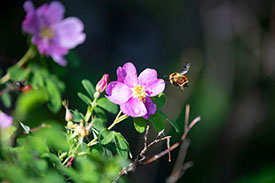
Bumble bee on Wood’s rose, SK- Jason Bantle
Bees, like many other pollinators, are a sign of a healthy ecosystem. Unfortunately, these cute critters face numerous threats, including habitat loss, climate change, disease and poisoning. As a result, many bee species, such as western bumble...
Anchoring the earth
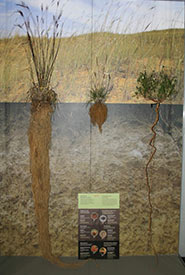
Exhibit showing big bluestem on the left, June grass in the middle and white prairie-clover on the right. (Photo courtesy of Manitoba Museum)
One of the most impressive plant specimens at the Manitoba Museum is a huge, preserved clump of grass that shows the entire root system. I think the reason everybody likes this specimen is that it provides a perspective that no one has ever seen:...
A field season in the Rice Lake Plains that was far from plain
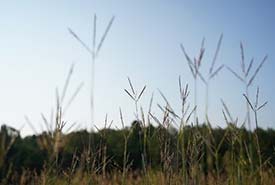
Rice Lake Plains, ON (Photo by NCC)
This past field season spent as a conservation technician with the Nature Conservancy of Canada (NCC) was one to remember. As a soon-to-be graduate of the master's of environmental science program at the University of Toronto, specializing in...
Tales of recovery: Small white lady's-slipper
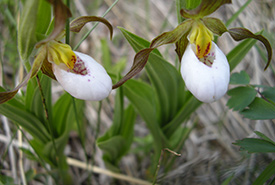
Two small white lady’s-slippers, a threatened species with deceptive flowers (Photo by Steven Anderson/NCC staff)
There is no abrupt line marking the edge of Canada’s prairie region. No sign on the highway saying “thanks for visiting.” In western Canada, grasslands gently rise and merge into the forested foothills of the Rocky Mountains....
Don’t trust lady’s-slippers (if you’re a bee)
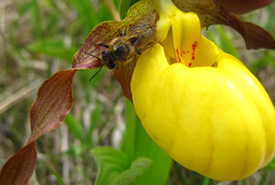
This honeybee was tricked into pollinating this yellow lady’s-slipper. (Photo by Steven Anderson/NCC staff)
Before I began working at the Nature Conservancy of Canada (NCC), I spent six years studying the pollination of two species of lady’s-slipper orchids in Manitoba and the northern U.S. While I no longer spend all of my time thinking about...
Camping in the tall grass prairie
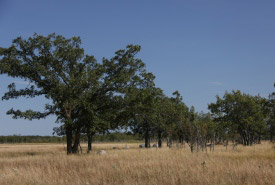
Tall grass prairie, Manitoba (Photo by NCC)
This past summer, the tall grass prairie of Stuartburn, Manitoba, was filled with the sounds of footsteps and laughter. Stephanie Murray, a former communications and engagement intern with the Nature Conservancy of Canada’s (NCC’s)...
A glimpse of the past: Using historic maps to guide land management
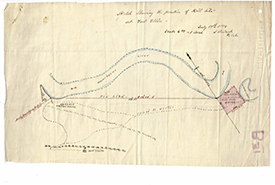
Historic land survey outlining the store house and fort site at NCC’s Fort Ellice property in MB (Photo by Manitoba Archives 2019)
The Prairie provinces, like much of agricultural Canada, look vastly different than they did before European settlement. During the development of Western Canada, forests were cleared, wetlands drained and grasslands plowed in an effort to settle...
Manitoba: More than what can be seen from the highway

Tall grass prairie, Manitoba (Photo by NCC)
As you drive through Manitoba along the Trans-Canada Highway, you might get the impression that the province is flat and covered in aspen trees and agricultural lands. But there is much more to Manitoba than what can be seen from the...
The seasons of nature: Witnessing an ever-changing landscape along the Agassiz Interpretive Trail
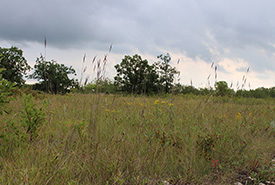
Agassiz Trail, MB (Photo by NCC)
At the Nature Conservancy of Canada’s (NCC’s) Agassiz Interpretive Trail in southeast Manitoba, a change of seasons brings a different tune to the landscape. In spring, you may hear sharp-tailed grouse rustling in the forest or...
Adjusting to change
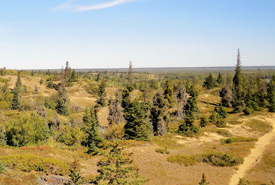
Assiniboine Delta, MB (Photo by Jordan Becker)
“According to Darwin’s Origin of Species, it is not the most intellectual of the species that survives; it is not the strongest that survives; but the species that survives is the one that is able best to adapt and adjust to the...

